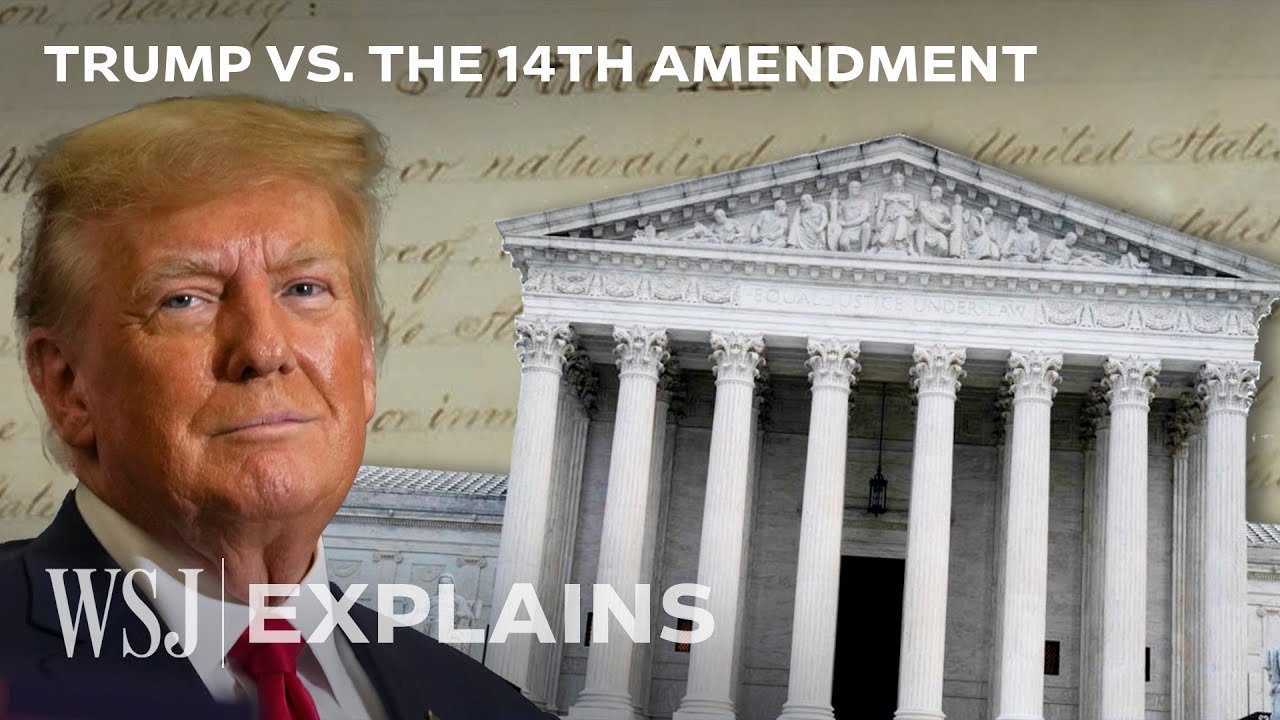The Wall Street Journal examines the recent actions taken by Colorado and Maine to exclude Donald Trump from the GOP primary ballot due to his presumed involvement in the events of January 6th. This decision is based on Section 3 of the 14th Amendment, which bars individuals who have engaged in insurrection or rebellion from holding office. The video delves into the historical background of the amendment, its rare application throughout history, and the legal complexities surrounding its interpretation. With Trump appealing to the Supreme Court, the video outlines the key questions that could shape the Court’s assessment, touching on the definition of insurrection, the necessity of a criminal conviction, the amendment’s applicability to a president, and the mechanisms of enforcement.
- Colorado and Maine have ruled that Donald Trump cannot be on the ballot for the GOP primary due to his involvement in the January 6th incident.
- The case is centered around the interpretation of the 14th Amendment, Section 3.
- Historical context of the 14th Amendment is discussed, including its origins and intentions post-Civil War.
- Section 3 was originally designed to bar Confederates from holding future public office, but has rarely been invoked in American history.
- Victor L. Berger, a congressman indicted for espionage, was refused a seat by Congress under Section 3 but later had his conviction overturned and served additional terms.
- There are ongoing questions about how to define insurrection and whether a criminal conviction is needed to invoke Section 3.
- Trump has faced several charges related to January 6th, but none for insurrection, and his trial has not started.
- A New Mexico County Commissioner was unseated under Section 3 after being convicted of trespassing on January 6th.
- Legal experts question whether the president is considered an “officer under the United States” and thus subject to Section 3.
- Uncertainty exists on who has the authority to enforce Section 3 and whether it can be applied to prevent someone from appearing on a ballot.
- The lack of case law and clear historical intent behind the 14th Amendment presents challenges for the Supreme Court’s interpretation.
The Wall Street Journal is an American business and economic-focused international daily newspaper based in New York City. The Journal is published six days a week by Dow Jones & Company, a division of News Corp.
AllSides Media Bias Rating: Center
https://www.allsides.com/news-source/wall-street-journal-media-bias
Official website: https://www.wsj.com
Original video here.
This summary has been generated by AI.
